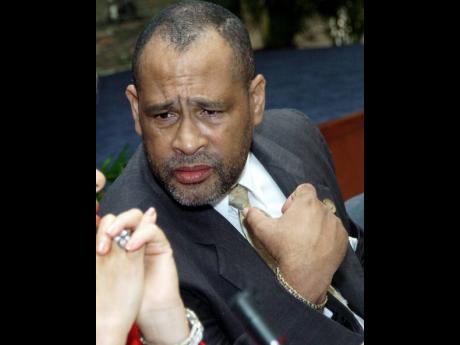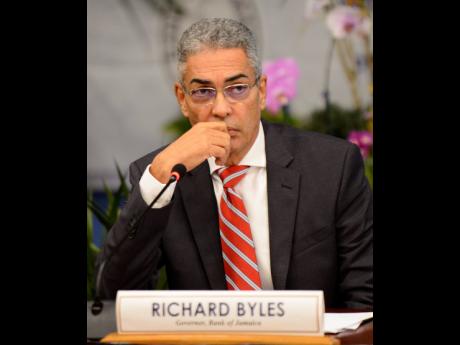Ex-BOJ governor backs timeout for bank hires
Former Bank of Jamaica (BOJ) Governor Derick Latibeaudiere has supported a proposal from Jamaica’s anti-corruption watchdog for senior central bank personnel who are involved in regulations, examinations, or inspections to be restricted from...
Former Bank of Jamaica (BOJ) Governor Derick Latibeaudiere has supported a proposal from Jamaica’s anti-corruption watchdog for senior central bank personnel who are involved in regulations, examinations, or inspections to be restricted from compensated employment with private depository institutions for a one-year period after leaving government.
The recommendation is contained in the third annual report of the Integrity Commission, which was tabled in Parliament on Tuesday.
In fact, Latibeaudiere said that a senior BOJ official who had regulatory responsibility might have knowledge of things that would place that individual in a position to make decisions that could, inevitably, be profitable to him.
“In other words, if you were working in the bank and you had knowledge of institutions, or anything like that, I would think that common sense would tell you that you need to make sure that those people can’t, in any way, profit from that kind of knowledge that you have,” said Latibeaudiere in a brief response on Wednesday.
Current BOJ Governor Richard Byles told The Gleaner that the central bank did not have the opportunity to discuss the policy suggestion by the Integrity Commission and, therefore, could not provide a position on it at this time.
He indicated that there was no policy at the central bank that required its senior personnel to observe a ‘cooling-off’’ period before taking up positions in the banking sector.
Jamaica Bankers Association President Jerome Smalling said that such a policy would affect the sector’s ability to recruit from the available talent pool.
He noted that every year, the banking sector would have recruited about one person who held a senior position in ministries, departments, and agencies.
Executive director of the Integrity Commission, Greg Christie, said that the law mandates the anti-corruption body to make recommendations for legislative changes for best practices.
He told The Gleaner on Wednesday that Section 6(1) of the Integrity Commission Act, 2017, directs the corruption watchdog to monitor legislative and administrative practices related to the prevention of corruption.
According to Christie, in some jurisdictions, there were revolving-door policies that restricted senior public officials who carried out regulatory roles from taking up jobs in the private sector for a defined period to avoid any suspicion of a payback.
Christie said that the policy would apply particularly to senior officials in government who held positions in regulatory bodies and went to work with companies they oversaw a short period after leaving their jobs in the public sector.
The Integrity Commission also suggested guidelines that would apply to procurement personnel in government ministries, departments, and agencies.
According to the report, procurement personnel in government should be limited in their post-employment representational, lobbying, or advocacy activities on behalf of private entities after leaving the public sector.
The commission is also of the view that they should also be prohibited from receiving compensation from certain private contractors for a period after being responsible for procurement or certain large contracts as government officials.


